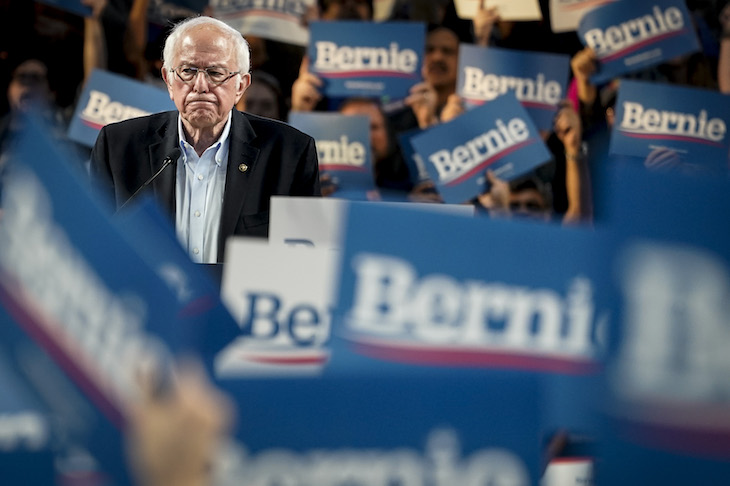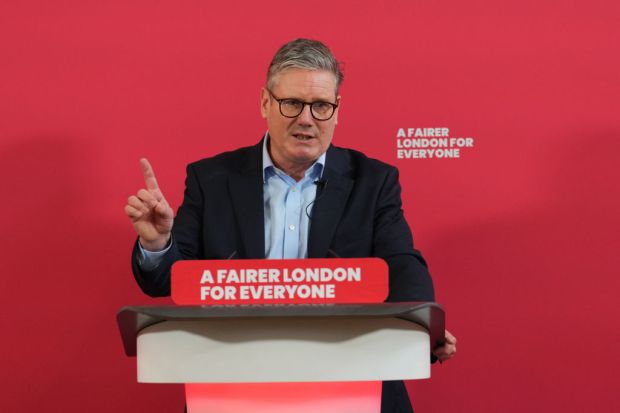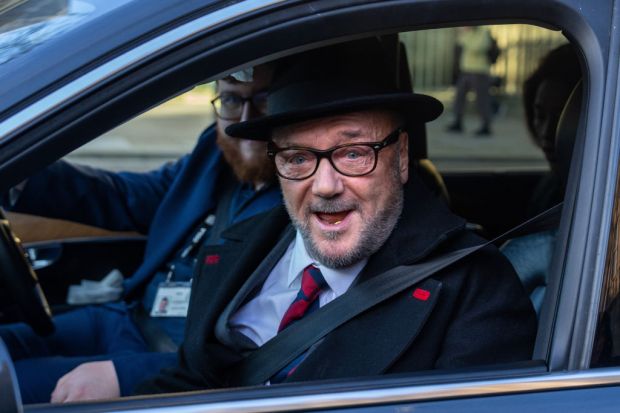Bernie Sanders is a phenomenon in much the same way as Donald Trump was a phenomenon in 2016. His supporters worship him. His enemies detest him. And the reporters covering him are unsure what to make of his rise and appeal.
Like Trump’s presidential candidacy four years ago, Sanders’ candidacy is riding on the back of extreme discontent in America. There are millions of Americans working longer hours for stagnant wages and spending a good chunk of what they do take in on health insurance premiums, rent, mortgage payments and loan payoffs. There is a pervasive disgust about the rich sending their money to tax havens while the average schlub is forking over cash to Uncle Sam. Life isn’t fair; in many ways, Bernie Sanders’ whole campaign seeks to make life at least a little bit more tolerable for the middle and lower classes. It’s a campaign message that is very similar to Labour leader Jeremy Corbyn, who has spent decades seeking to transform British society to the detriment of the elite power-brokers.
Corbyn’s gambit worked for a while. Until he got demolished in last year’s general election and gutted the Labour party, turning it into a group of glorified, antagonistic backbenchers. It’s precisely this result that elites, strategists and operatives in the Democratic party are afraid of. Could Bernie Sanders do to the Democratic party what Jeremy Corbyn did to Labour?
Amongst the moderate slice of the party, this is the scenario keeping them up at night. If Sanders does well on Super Tuesday’, when 14 states go to the polls, the self-proclaimed ‘democratic socialist’ could be on his way to capturing the party’s nomination. At that point, it would be too late for moderate Democrats to stop Bernie’s movement. So they have been spending the last two weeks screaming to anyone who would listen about the Vermont senator’s supposed weaknesses. Matt Bennett, a fixture of the Democratic Party and a vice president of the proudly moderate Third Way organization, described a possible Sanders vs Trump general election matchup as if it were the end of the world. Don Beyer, a Democratic lawmaker representing a swing-district in Virginia, said that ‘very few’ of his colleagues on Capitol Hill see Bernie Sanders as presidential material.
Part of the opposition to Sanders representing the party in November is philosophical. While it’s easy for Republicans to paint all Democrats as tax-and-spend liberals, this is far from the reality. There are Democrats, particularly in the Midwest and in suburbs across America, who oppose Sanders’ signature ‘Medicare for all’ healthcare initiative and Green New Deal because it would cost an arm and a leg to the taxpayer.
Americans like capitalism. Listening to Sanders give a stump speech, he comes across as somebody who would rather burn Wall Street to the ground. How this plays politically is difficult to determine so early on in the presidential primary. But moderates like Pete Buttigieg, Amy Klobuchar, Bennett, and the rest would much rather not find out. None of them wants to test the hypothesis.
It’s hard not to see the parallels with Trump’s campaign in 2016. Back then, GOP establishmentarians were doing what Democratic establishmentarians are doing now: warning their compatriots that a temperamental, fringe, loud ideologue would drag the rest of the party through the mud. There was such fear in the hearts of GOP insiders about Trump’s candidacy that a Never-Trump movement emerged with the goal of blocking the businessman’s path to the nomination. It not only failed, but their worries turned out to be misplaced. Trump not only won the general election, but Republicans held their House and Senate majorities. Politics has a tendency to humiliate the most confident predictors.
Bernie Sanders could be the Jeremy Corbyn of America come November. But he could just as easily defy the political odds like Trump and surprise people with a broad-based coalition of minorities, young voters, working-class whites, and intellectuals. Moderates are putting their chips on a wipeout, but the game is still a crapshoot.
Got something to add? Join the discussion and comment below.
Get 10 issues for just $10
Subscribe to The Spectator Australia today for the next 10 magazine issues, plus full online access, for just $10.




















Comments
Don't miss out
Join the conversation with other Spectator Australia readers. Subscribe to leave a comment.
SUBSCRIBEAlready a subscriber? Log in